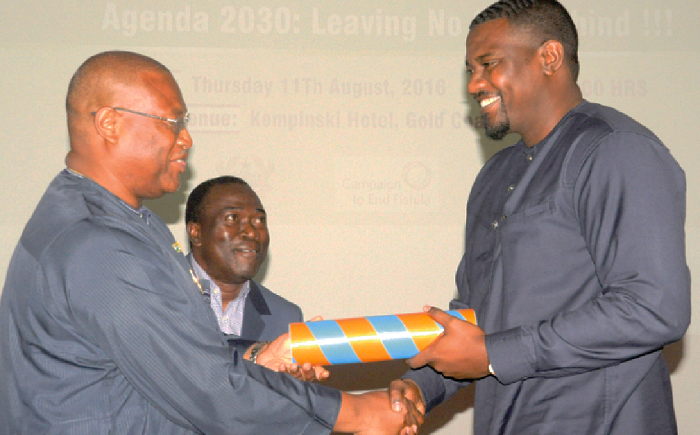Ghana records over 1,300 obstetric fistula cases annually, the country representative for the United Nations Population Fund (UNFPA), Mr Babatunde Ahonsi, has said.
Out of the number, only about 150 patients receive treatment while the remaining cases are not attended to due to the lack of facilities and the patients’ financial inability to seek treatment.
Mr Ahonsi made this known at a ceremony to endorse movie star John Dumelo as the country’s obstetric fistula ambassador by the Ghana Health Service (GHS) in collaboration with UNFPA in Accra last Thursday.
Obstetric fistula
Obstetric fistula occurs as a result of prolonged labour during childbirth which leads to a woman leaking either urine or faeces or both.
Mr Ahonsi said although preventable, the condition was a major public health problem because there was a lack of funding and infrastructure for adequate obstetric healthcare delivery across the country.
He said the illness was exclusively for the poorest, most vulnerable, marginalised women and girls.
He continued that the undignified illness affected women who lacked access to timely, quality and life-saving maternal health care.
“If it is totally preventable why do we make our mothers, sisters, aunties, daughters still live in such mishaps when they are simply trying to bring forth new lives into the world and ensuring the continuity of humanity?” he asked.
He therefore called for collaborative efforts to tackle and eradicate the illness in Ghana.
Challenge
For his part, the Minister of Health, Mr Alex Segbefia, said managing the illness was a major challenge to the nation, since Ghana did not have adequate human resources to handle the issue.
“We need to have obstetrician gynaecologists of which we have very few in the country. Even among those few qualified to do so not all are willing to take up the challenge.”
He therefore commended the few obstetrician gynaecologists who have dedicated themselves to providing treatment for women with the ailment.
Mr Segbefia observed that women with the illness are neglected by their loved ones and society at large.
“Those who are cured are still stigmatised and discriminated upon, hence making it difficult for them to be integrated into the society,” he stated.
He said the condition was more prevalent in the communities that practised genital cutting and child marriage.
Mr Segbefia called for awareness creation of the illness, since Ghanaians had little or no knowledge about it.
Hope
The Chairman of the National Task Force on Obstetric Fistula, Dr Anyetei Lassey, said there was hope for women with the illness.
According to him, treatment cost GH¢2,000, which many women with the disease could not afford.
He lauded Mr John Dumelo for accepting to become the ambassador.
In his acceptance speech, Mr Dumelo said he would focus on awareness creation by using documentaries, films, cartoons as well as raise funds to pay for the treatment of women with fistula.

